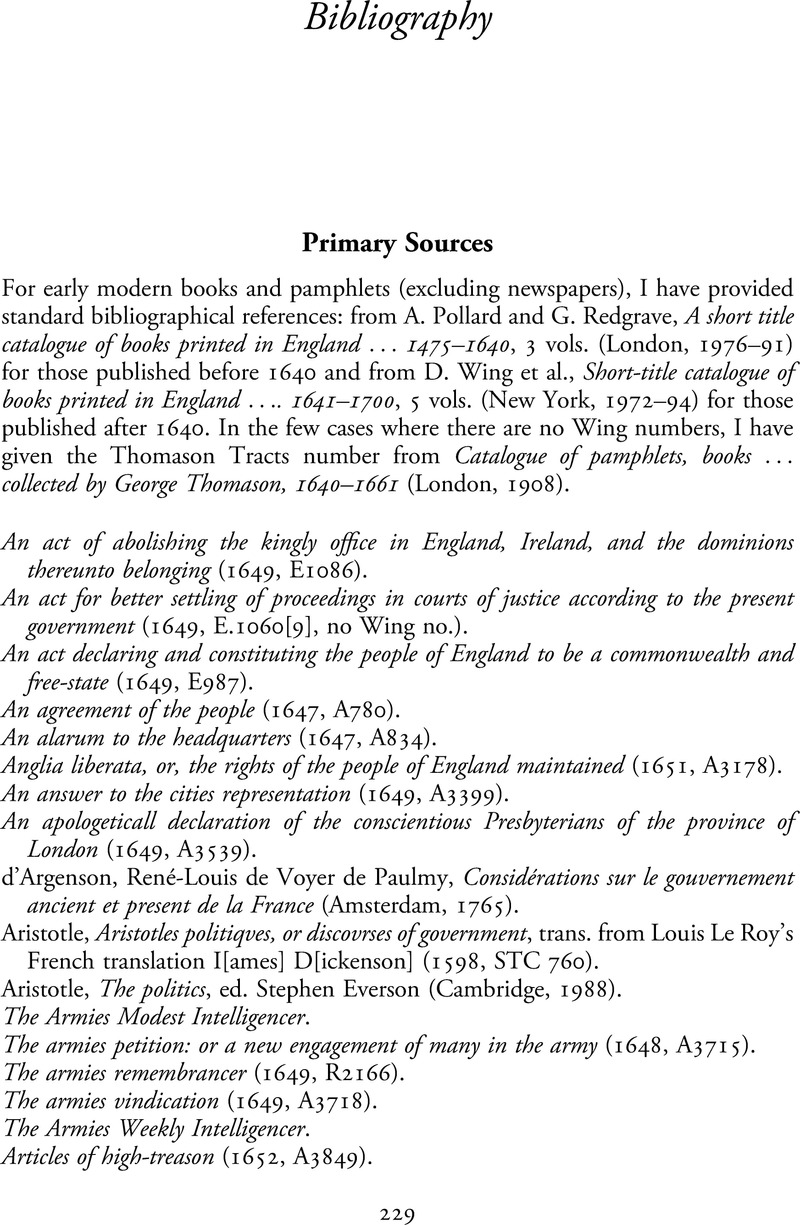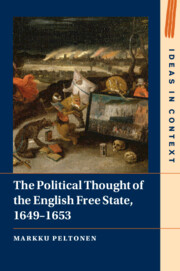Book contents
- The Political Thought of the English Free State, 1649–1653
- Ideas in Context
- The Political Thought of the English Free State, 1649–1653
- Copyright page
- Dedication
- Contents
- Acknowledgements
- Introduction
- Chapter 1 Changing the Form of Government
- Chapter 2 Anti-monarchism
- Chapter 3 The Free State
- Chapter 4 Aristocracy
- Chapter 5 Democracy
- Epilogue
- Bibliography
- Index
- References
Bibliography
Published online by Cambridge University Press: 13 October 2022
- The Political Thought of the English Free State, 1649–1653
- Ideas in Context
- The Political Thought of the English Free State, 1649–1653
- Copyright page
- Dedication
- Contents
- Acknowledgements
- Introduction
- Chapter 1 Changing the Form of Government
- Chapter 2 Anti-monarchism
- Chapter 3 The Free State
- Chapter 4 Aristocracy
- Chapter 5 Democracy
- Epilogue
- Bibliography
- Index
- References
Summary

- Type
- Chapter
- Information
- The Political Thought of the English Free State, 1649–1653 , pp. 229 - 257Publisher: Cambridge University PressPrint publication year: 2022

